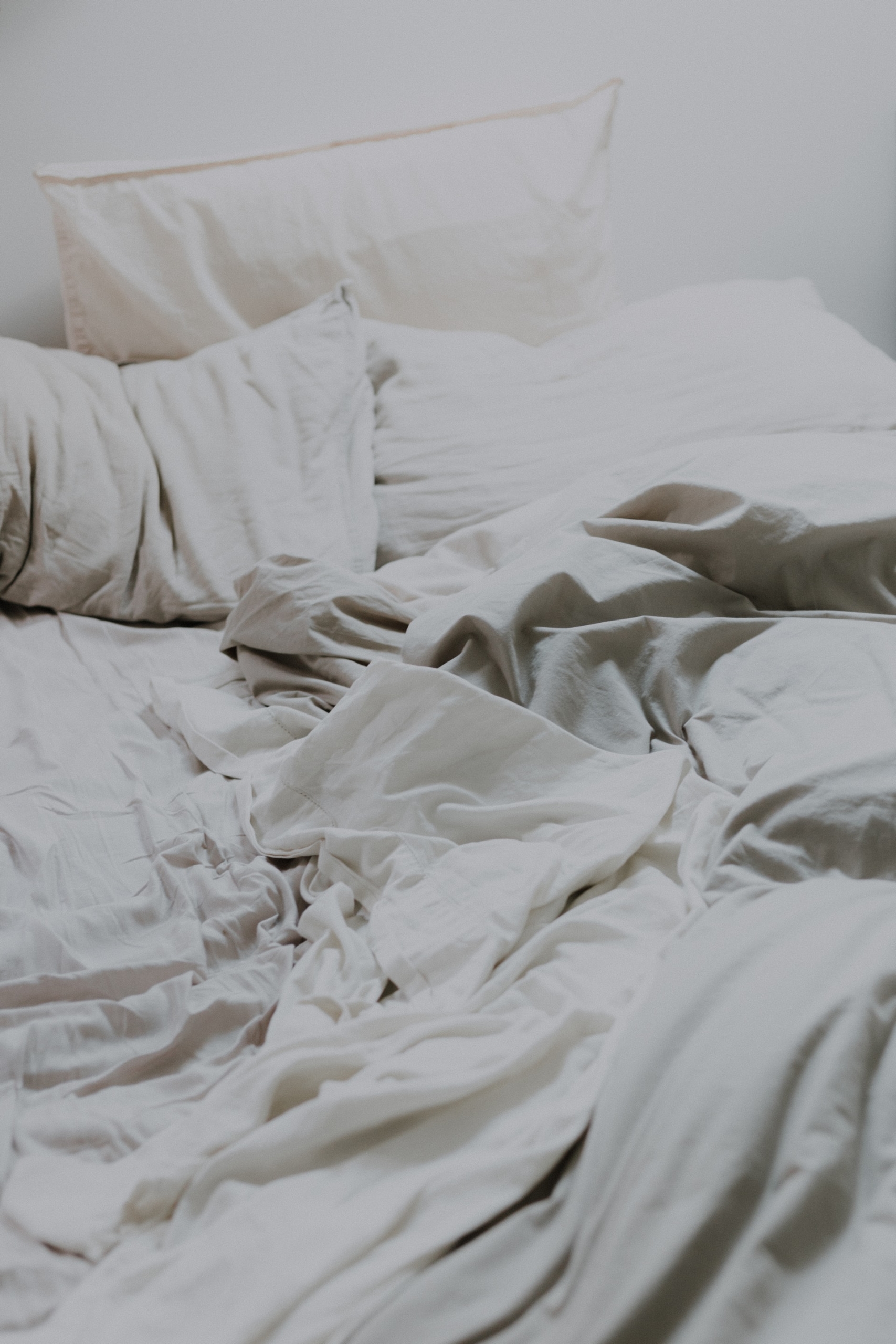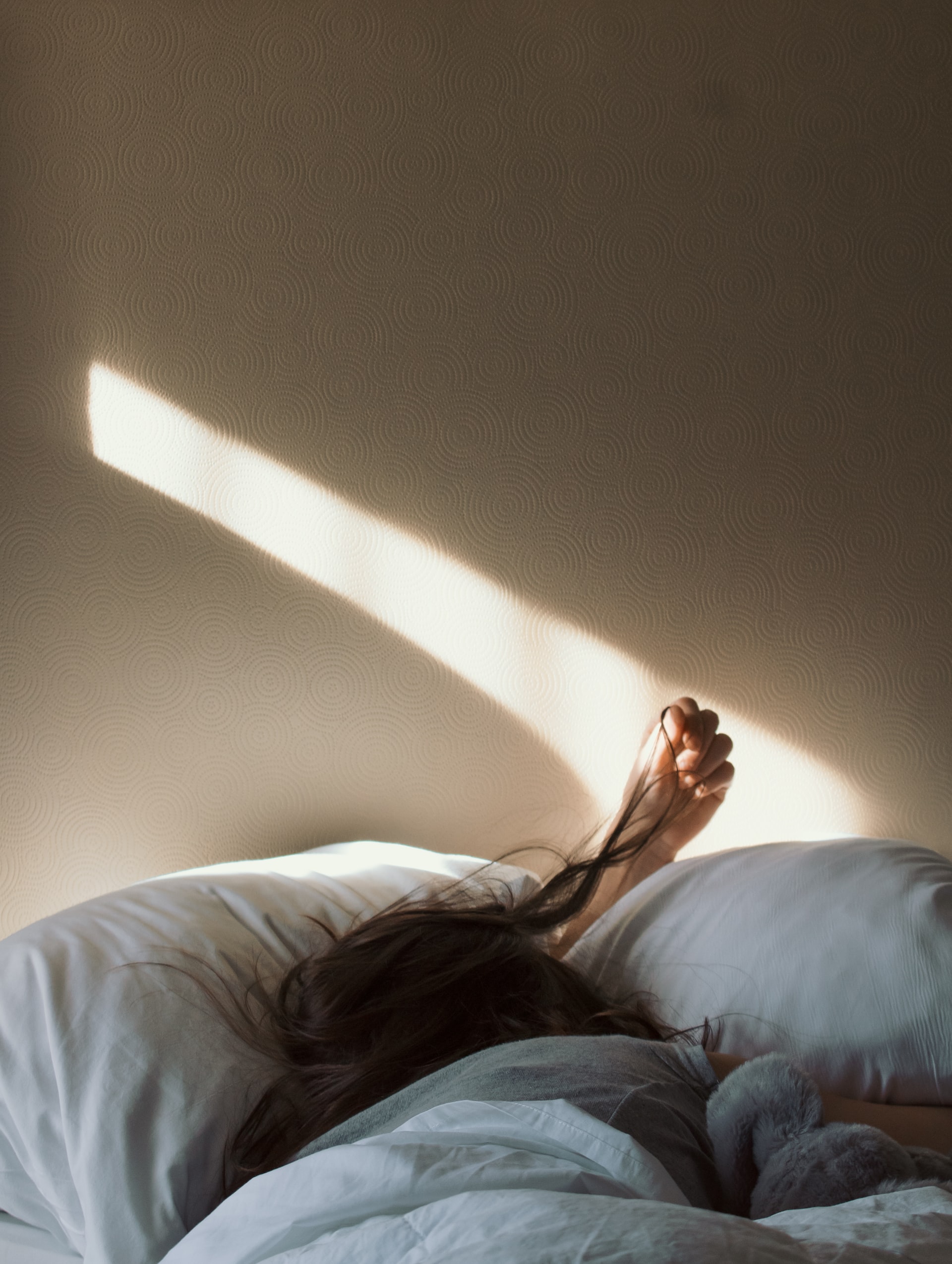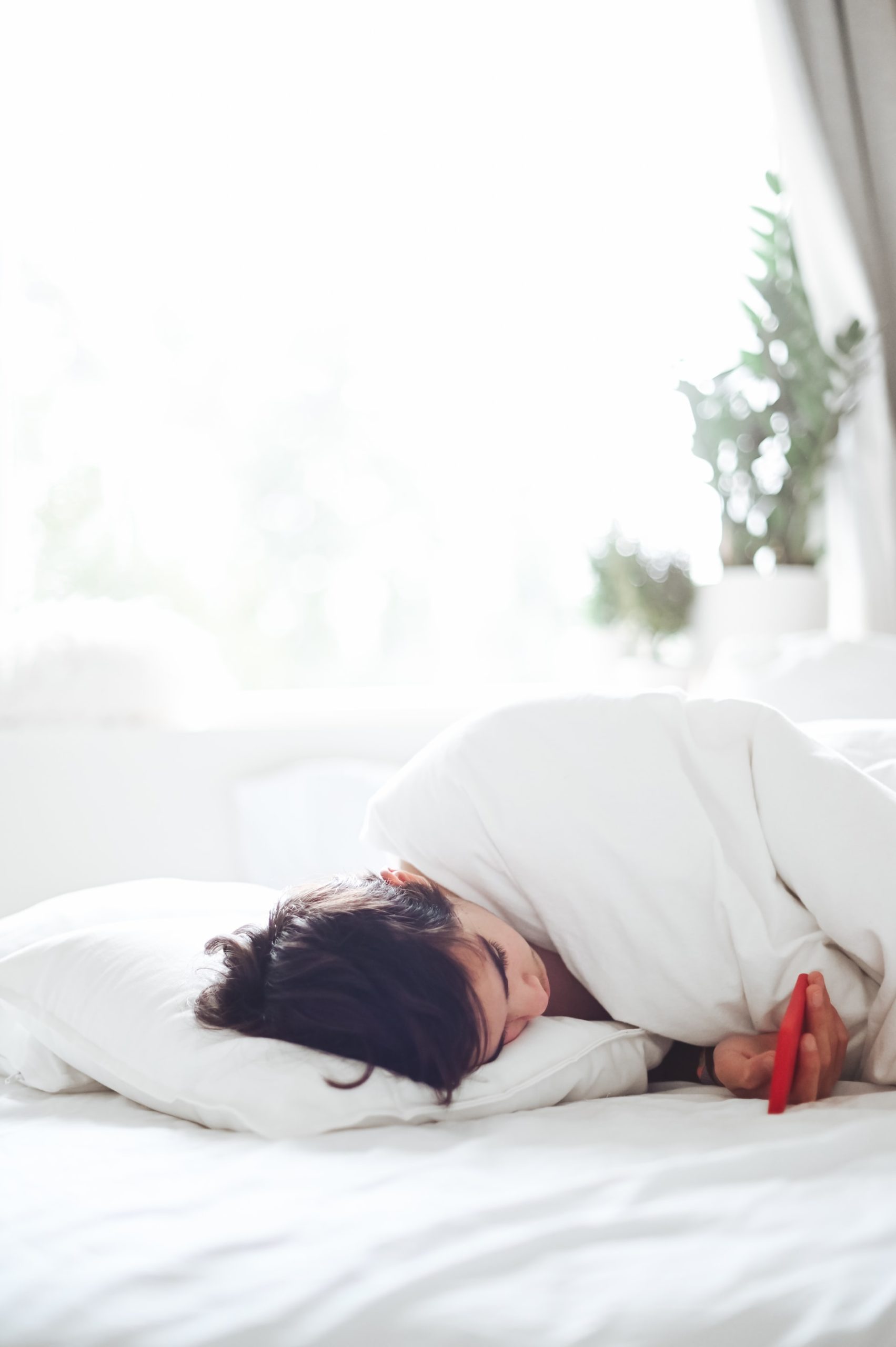There’s nothing that can beat getting a good night’s rest to feel refreshed and ready to tackle your day. Our bodies need sleep, and good sleep is tied to our mental, emotional, and physical health. However, for some, sleep anxiety is a real problem, and the thought of going to sleep doesn’t inspire calm thoughts or bring joy.
After a long day of conversations, work, thoughts, and other interactions with people, we need to step back and get some rest. Sleep ought to be a peaceful event that we welcome and eagerly seek out when we need it; it is, after all, one of God’s many gifts to His creation.
What is sleep anxiety?
Sleep anxiety is the fear or worry about going to sleep. This may look like being uneasy about not falling asleep or not being able to stay asleep. For some people, they may experience something more intense, such as feeling the need to remain alert, or thinking that something bad will happen to them while they are sleeping. Intense feelings such as these can be described as a distinct fear about sleep called somniphobia.

Sleep anxiety is a common mental health condition, affecting around forty million people in the U.S. As many as 40% of Americans experience insomnia at one time or another in their lives.
Anyone can be affected by sleep anxiety, including children and teens. However, there is a greater likelihood of developing sleep anxiety if one has a sleep disorder such as narcolepsy, restless leg syndrome, sleep walking, insomnia, and sleep apnea.
Nighttime anxiety can sometimes accompany other mental health conditions such as panic disorder, depression, post-traumatic stress disorder, and anxiety disorders. Good sleep is a key element to emotional, mental, and physical health, and having sleep disruptions will often negatively affect these mental health conditions.
Why do people experience it?
Sleep anxiety may result from several sources. Some people may have a condition called hypothyroidism, which is when you don’t have enough thyroid hormone in your bloodstream, and your metabolism slows down. This can cause a combination of anxiety and insomnia and leads to a cycle of poor sleep.
Our bodies are designed to allow us to respond quickly in dangerous or stressful situations. When feeling anxious or stressed, the body’s typical response is to release hormones such as cortisol and adrenaline that help increase one’s heart rate and prepare the muscles to spring into action.
This is great if you find yourself in a dangerous situation in which you need to be alert and respond quickly. The problem with being an anxious person or having chronic anxiety is that your body is in this state most of the time, even over everyday situations.
problem with being an anxious person or having chronic anxiety is that your body is in this state most of the time, even over everyday situations.
A person’s anxiety can affect sleep through his or her dreams. Have you ever fallen asleep after a particularly hair-raising day? Often, your dreams that night will have elements that are similarly disturbing. There is research that suggests that Rapid Eye Movement (REM) sleep can be affected by our anxiety.
REM sleep is that stage of sleep when our dreams are particularly intense, and those dreams can be affected by anxiety to become nightmares or deeply disturbing dreams that wake you and keep you awake.
When your body has high levels of stress hormones, it is difficult to relax, and that has a significant impact on the ability to fall asleep easily. When sleep does come, it may be disrupted, and you wake up with worried thoughts on your mind which can make it hard to fall asleep again. Adults who suffer from post-traumatic stress disorder my experience nightmares that make it hard to fall and stay asleep.
When people aren’t getting the amount of sleep they need, they become concerned about that lack, and worrying about it actually makes the insomnia worse and increases anxiety around sleep.
Signs and symptoms
You will need to approach your healthcare provider to get a proper diagnosis for sleep anxiety. To diagnose sleep anxiety, he or she may ask you questions to ascertain your situation, such as whether your anxiety typically occurs before bed, and whether or not you eat and drink anything before bed.
The purpose behind these questions is to eliminate other possible sources of sleep disruption and anxiety around sleep. In some situations, a sleep study, also called a polysomnography, may be conducted to discern your body functioning during sleep and determine if you have a sleep disorder.
 Having said the above, there are a few signs to look out for that may point to sleep anxiety. You should talk with your doctor if you experience these, and they can help you take necessary next steps.
Having said the above, there are a few signs to look out for that may point to sleep anxiety. You should talk with your doctor if you experience these, and they can help you take necessary next steps.
If you’re feeling anxiety before bed, you may experience a fast heart rate, sweating, tremors or trembling, muscle tension, and digestive problems. Additionally, your behavior may include feelings of nervousness, restlessness, irritability, overwhelm, and having a sense of approaching doom or impending danger.
Ways to overcome sleep anxiety
You need good sleep to have a healthy body and mind. If your sleep anxiety affects the quality of sleep you’re getting, over the long term that can have many devastating health complications such as heart disease and arrhythmia, stroke, obesity, high blood pressure and diabetes.
You can reduce your risk of sleep anxiety by getting regular exercise, eating a healthy diet, practicing good sleep hygiene, and by consistently taking any medications for mental health disorders or sleep disorders your doctor or healthcare provider have prescribed for you.
Sleep anxiety can be successfully managed. If you have sleep anxiety, there are a variety of ways to manage sleep anxiety and begin overcoming it, and these include:
- Good sleep hygiene
- Cognitive Behavioral Therapy (CBT)
- Medication
Sometimes, our bedtime routines undermine our ability to have good quality sleep by either making it harder to fall or stay asleep. Good sleep hygiene is about good habits or routines that increase your chances of getting a good night’s rest. You can do the following to improve your sleep habits:
- Go to bed and wake up at a set time each day and prime your body for bed by doing the same things every night. Give yourself at least seven hours of sleep each night.
- Resist the urge to nap so that you feel sleepy around bedtime.
- Make sure your room is comfortable, dark, and quiet.
- Avoid using your bed for watching television or getting work done. It’s advisable to stop using electronic devices at least 30 minutes before your bedtime so that you can begin winding down.
- Avoid eating right before bed and avoid exercising for about two hours before going to bed.
- Avoid consuming caffeine late in the afternoon or in the evening. Caffeine amps you up and makes it harder to settle down and sleep. It’s also important to avoid drinking plenty of fluids before bed, and that includes alcohol.
- As part of your process of winding down each night, you can calm yourself by doing gentle stretches, having a warm bath, or listening to soft music.

In addition to good sleep hygiene, therapy and medication can also help you overcome sleep anxiety. CBT is a form of talk therapy that can help you in various ways that include changing negative or inaccurate thinking about sleep, avoiding unhelpful behaviors or environmental factors that trigger anxiety or make sleeping difficult, and helping you to better understand how sleep and anxiety affect your brain and impact your body.
Your therapist may help you with exercises such as meditation and deep breathing that can help you unwind before bed and promote good sleep. CBT can take between 6-12 weeks to produce tangible results, so give it time to go into effect.
With medicating sleep anxiety, it’s wise to be cautious, as some medications may increase anxiety or make getting good sleep harder. In some cases, over the counter sleep aids may be helpful, but they can also be habit forming. That’s why it’s important to avoid taking medication without the supervision of a doctor or healthcare provider.
Your doctor may prescribe medication to either treat any underlying mental health disorders that may be causing the sleep anxiety or to address the sleep anxiety directly, and that medication can also improve symptoms of other sleep-related disorders. If there are any side-effects you experience taking such medications, be sure to tell your doctor about them.
Going to sleep is a natural act, but for some people, sleep is a source of dread. Being anxious about sleep means that a natural process intended to give us rest and restore us for the next day becomes a source of distress. If you’re struggling with sleep anxiety, consider reaching out to a counselor or therapist who can help you begin getting that anxiety under control.
“Unmade Bed”, Courtesy of Priscilla Du Preez, Unsplash.com, CC0 License; “Sleep Anxiety”, Courtesy of Hayley Murray, Unsplash.com, CC0 License; “In Bed with Phone”, Courtesy of Gaeelle Marcel, Unsplash.com, CC0 License; “Tiny House”, Courtesy of Nachelle Nocom, Unsplash.com, CC0 License


